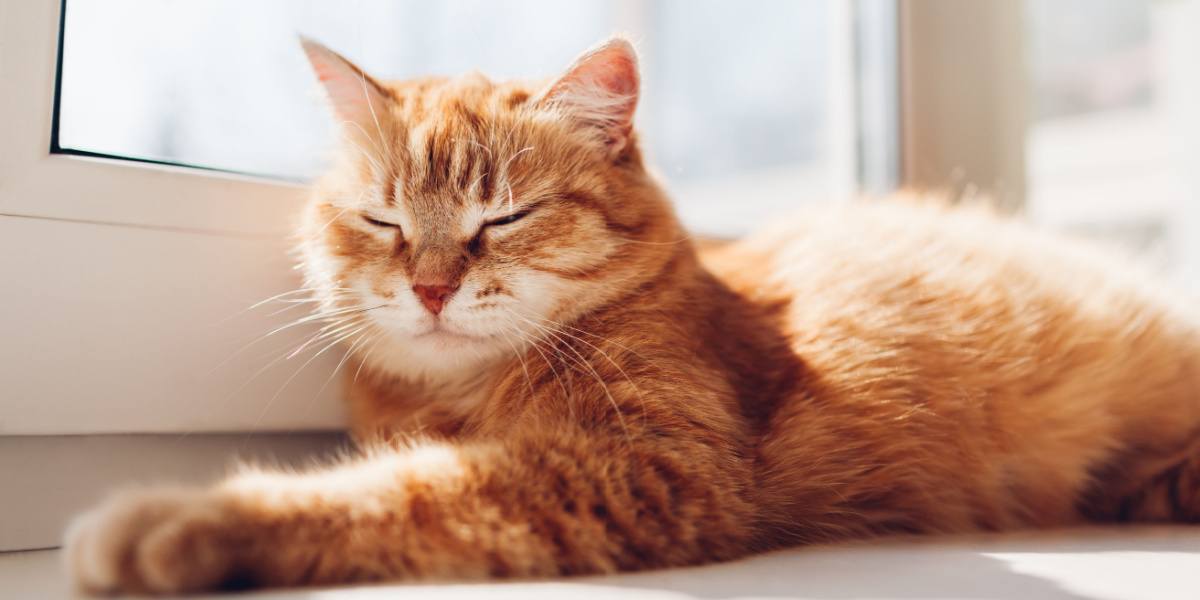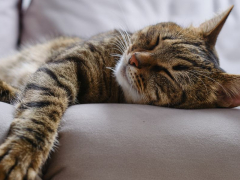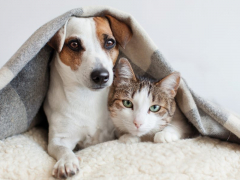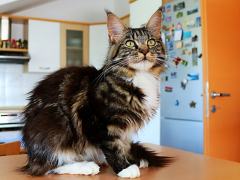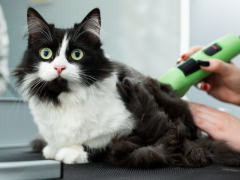Snoring is much less common in cats than it is in dogs or people. Many cats are silent, stealthy sleepers, which is perfect for a covert nap underneath the sheets! Most cats purr regularly, but snoring only affects some cats. Snoring is noisy breathing or harsh breathing noises that occur during sleep.
Cats are typically quiet sleepers, so snoring in cats is uncommon. Snoring in cats can be a sign of respiratory problems or health conditions, such as cat flu or blockage in their nasal passages. Cats that are obese and brachycephalic breeds might also snore when sleeping.Key Takeaways
Even usually quiet sleepers can sometimes make harsher noises in their sleep, for example, if they move into an unusual or obstructed sleeping position, or if they are sleeping in an unusually dry environment. Read on to find out why some cats snore, and when you need to be concerned.
Why Do Cats Snore?
Noisy sleep-time breathing usually happens for anatomical reasons, but snoring could also be a sign of a health issue. There are three main reasons your cat might be or might become a snorer, including:
1. Brachycephalic Cats
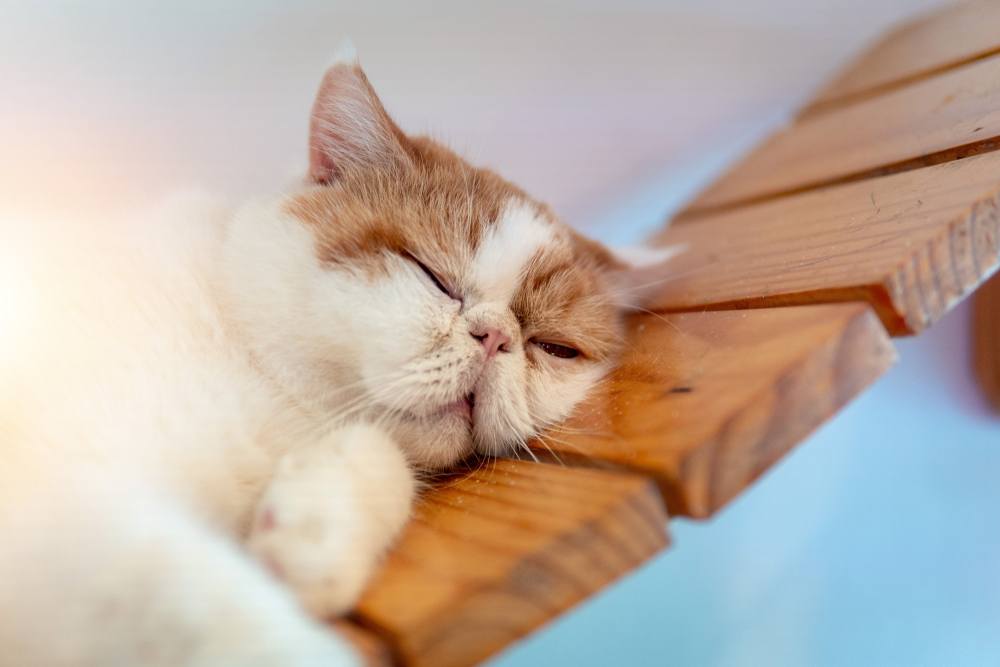
Some flat-faced cats might snore more due to the way their head and airways are constructed.
Brachycephalic literally means “shortened head,” and refers to breeds with a typically flatter face and less elongated nose. Some brachycephalic cat breeds include Burmese, Himalayans, Persians, British Shorthairs, and Exotic Shorthairs. These breeds have long been favorites with many cat owners, however, they can be associated with a number of health issues as a result of their head shape.
Brachycephalic breeds are more likely to suffer from stenotic nares, or narrow nostrils, which cause a restriction of airflow through the nose. Flat-faced breeds can also have an elongated soft palate—the soft tissue on the roof of their mouth is too long for their shorter head and can obstruct their airways.
Both of these issues can cause loud snoring in some cats. A shortened face also condenses the sinus system inside a cat’s head, which in turn can lead to noisy breathing.
Not all brachycephalic cats struggle with difficulty breathing, but if you are at all concerned, your veterinarian is best placed to discuss whether any medical, surgical, or environmental interventions might help your cat.
2. Weight Issues
Obesity or being overweight can increase the likelihood that your cat is a snorer. Although weight gain is often gradual and rarely causes major breathing problems, keeping your cat’s weight at a healthy level will do wonders for their overall wellness, as well as reduce noisy breathing. As well as snoring, overweight cats also be predisposed to other conditions such as:
- Feline lower urinary tract disease (FLUTD)/cystitis
- Osteoarthritis
- Diabetes
3. Respiratory Infections
These can be acute and sudden, or chronic and long-term. The most common upper respiratory infection in cats is commonly known as “cat flu,” which is a mushroom term for upper airway issues caused by a number of common infectious agents.
Cats with cat flu, or any upper airway infection, might have difficulty breathing, both when they are asleep and when they are awake.
Other clinical signs of cat flu might include:
- Nasal discharge
- Discharge from the eyes
- Sneezing
- Lethargy
- Reduced appetite and/or thirst
Although some of the viral causes of cat flu cannot be completely cured, cats can and do recover from nasty bouts of infection. They typically need supportive care to help them do this which might involve nutritional or supplement support, anti-inflammatory drugs, fluids, or antibiotics.
4. Nasal Obstructions
Although relatively uncommon, cats can get airway blockages that cause them to snore. Occasionally, foreign objects such as a grass seed or even a blade of grass can get lodged up the nose and behind the soft palate. Signs typically start quite suddenly, and cats can snort or sneeze to try and rid themselves of the blockage, as well as snore or breathe noisily. A trip to the vet to rule this out is the only option in these cases.
Again fairly rarely, cats can develop polyps or growths in their airways. This might result in a slow increase in snoring or breathing issues. Once again, your veterinarian is best placed to diagnose this, although it will help them if you can describe any other changes in behavior you have noticed.
When Should I Worry About My Cat’s Snoring?
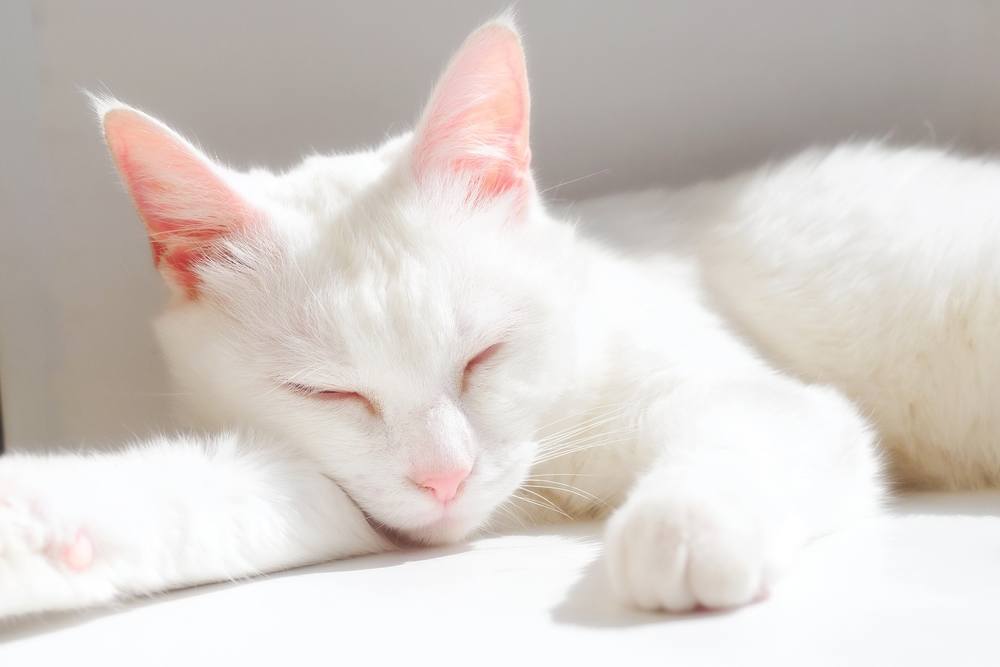
If you’re worried about your cat’s snoring, your vet can help determine if it’s abnormal or not.
Mild or occasional snoring might be as simple as your cat sleeping in a strange position, and be nothing to worry about, especially if your cat is otherwise bright, happy, and their usual self. On the other end of the spectrum, a sudden onset of difficulty breathing and loud snoring should book your cat a trip to the vet as soon as you notice it as it might represent a new or concerning health issue.
Brachycephalic cats can display a wide spectrum of upper airway signs, some of which can be treated conservatively with weight management and the use of humidifiers and environmental management. In more extreme cases, surgery is the best option for optimal wellness. Ultimately, your veterinarian is best placed to advise you of what steps need to be taken.
Also Read: Why Do Cats Purr When They Sleep?
Frequently Asked Questions
Is it normal for cats to snore loudly like a human?
Cats are typically much quieter sleepers than humans and are less likely to snore. Snoring in cats can be a sign of infection, a blocked airway, or breathing changes relating to breed or weight.
Why is my cat snoring all of a sudden?
The sudden onset of snoring can be a sign of obstruction in the nasal passage and should be assessed by a veterinarian. Other signs to watch out for include sneezing, snorting, and a pussy or bloody nasal discharge from one or both of the nostrils.
